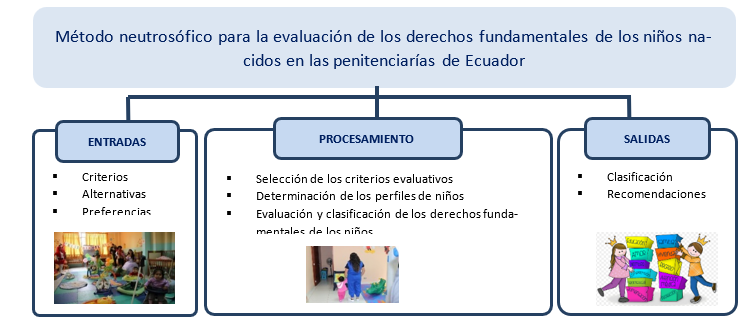Neutrosophic method for the evaluation of the fundamental rights of children born in Ecuador's penitentiaries
Main Article Content
Abstract
Children born in Ecuadorian prisons, due to the incarceration of their mothers, are exposed to significant violations of their fundamental rights, including the right to adequate development and a safe environment. The prison context not only lacks the basic conditions for providing healthy upbringing, but also, in many cases, creates an environment with little emotional and physical stimulation. The main objective of this research is to develop a neutral method for assessing the fundamental rights of children born in Ecuadorian penitentiaries. The result was an assessment of the fundamental rights of children born in Ecuadorian penitentiaries, where overcrowded conditions and constant surveillance, along with the risk of violence, create a highly stressful environment that can lead to severe emotional trauma and long-term negative effects. When children reach the age of three, they are separated from their mothers, which entails a drastic alteration of their emotional and social environment, affecting their emotional development and mental health. This scenario highlights the urgent need to reform the prison system by creating policies and programs aimed at protecting the rights of these children, offering alternatives that allow mothers and their children to remain in safer and healthier environments.
Downloads
Article Details

This work is licensed under a Creative Commons Attribution 4.0 International License.

